Digestive issues such as bloating, gas, and indigestion are everyday concerns, and while medicines offer relief, natural remedies can often provide lasting support without side effects. Herbs and spices used for centuries in Indian kitchens are now being recognised by modern science for their gut-healing properties. Dr Saurabh Sethi, an AIIMS, Harvard, and Stanford-trained gastroenterologist, strongly believes that “real gut healing starts in your kitchen.” He recently shared eight herbs he personally relies on for better digestion. From turmeric to cumin, these simple additions to daily meals can help soothe discomfort and strengthen gut health naturally.
8 gut-healing herbs recommended by an AIIMSs doctor
On Instagram, AIIMS, Harvard, and Stanford-trained gastroenterologist Dr. Saurabh Sethi shared eight herbs he personally uses to improve gut health, reminding followers that “real gut healing starts in your kitchen.”
Turmeric supports digestion and reduces inflammation
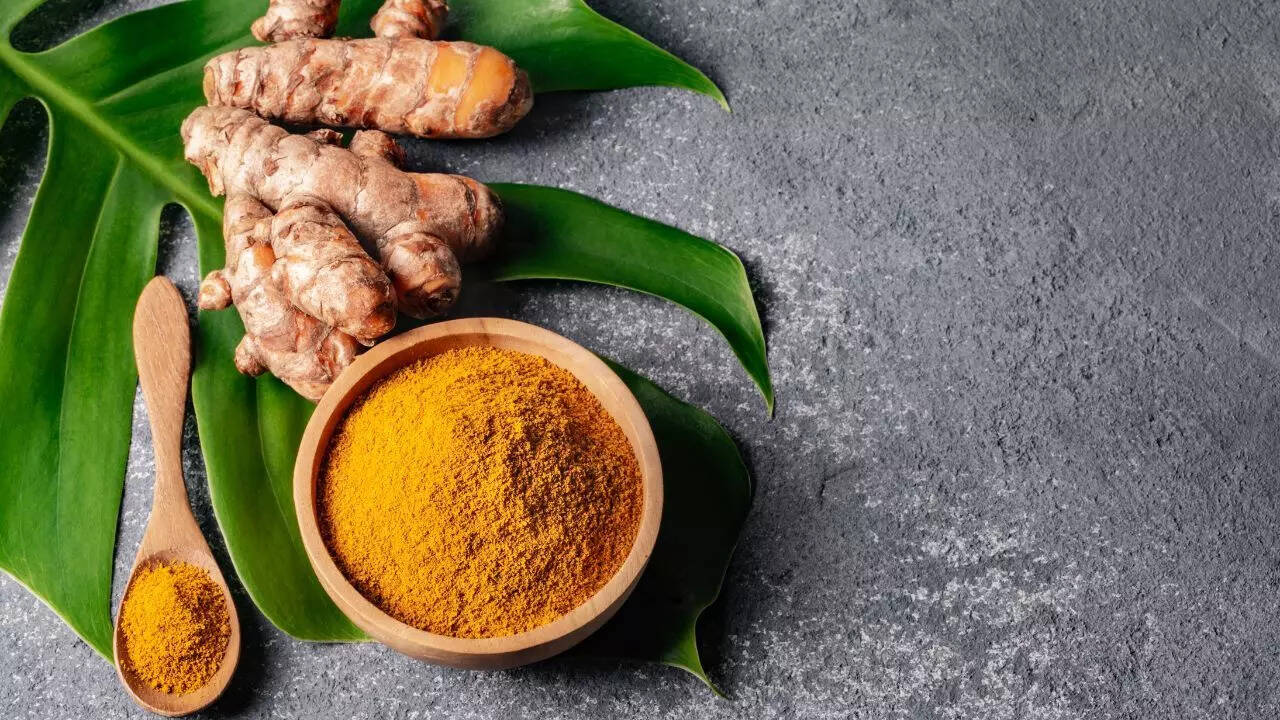
Turmeric, a staple in Indian households, is well known for its anti-inflammatory compound curcumin. Dr Sethi suggests adding turmeric to warm milk or curries to soothe the gut, reduce inflammation, and support bile flow, which helps break down fats. This golden spice not only calms an irritated digestive tract but also promotes overall gut lining health. Regular use may reduce the risk of long-term inflammatory gut conditions. A human pilot study published in study found that supplementation with turmeric or curcumin significantly altered gut microbiota composition, including a notable increase in species diversity; curcumin increased detected species by 69% compared to a placebo, which saw a 15% decrease
Ginger relieves bloating and nausea
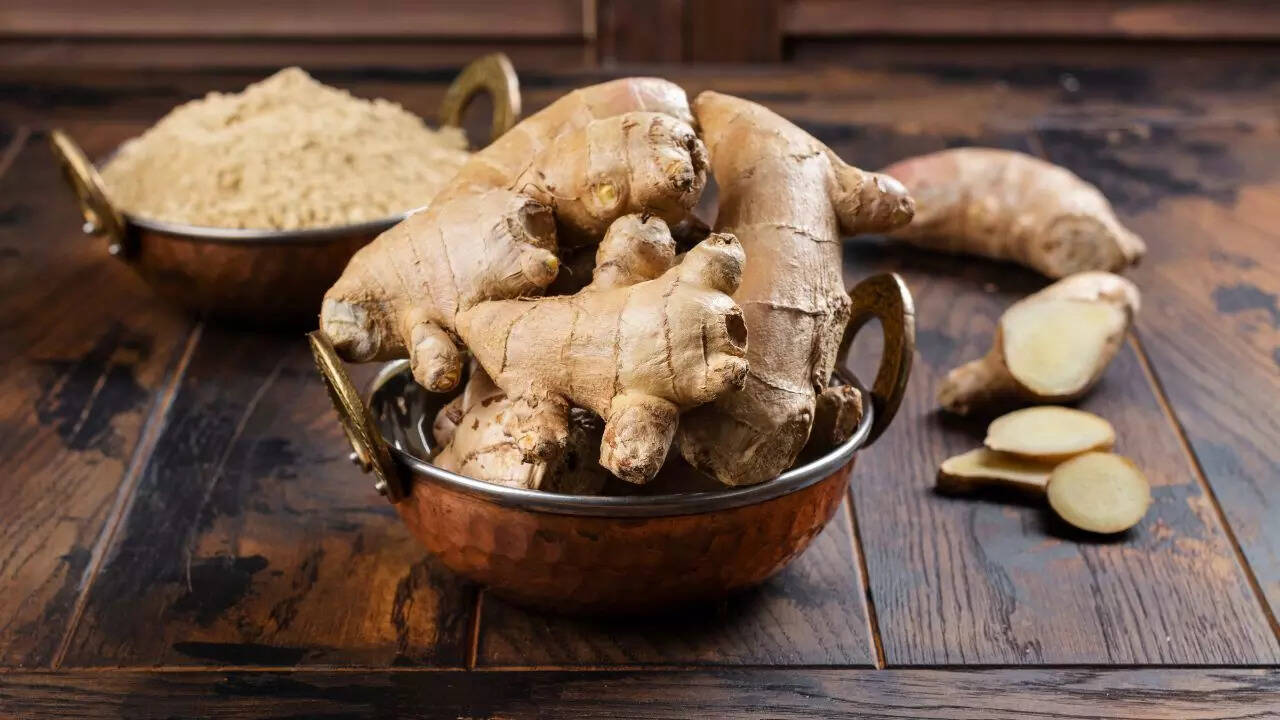
Ginger has long been used as a natural digestive aid. It stimulates gastric emptying, reduces bloating, and relieves nausea. Dr Sethi recommends steeping fresh ginger in hot water to make a soothing tea, especially after heavy meals. Its warming properties help settle the stomach, making digestion smoother and more comfortable. For people with sluggish digestion, ginger can act as a gentle stimulant.
Fennel seeds ease gas and bloating
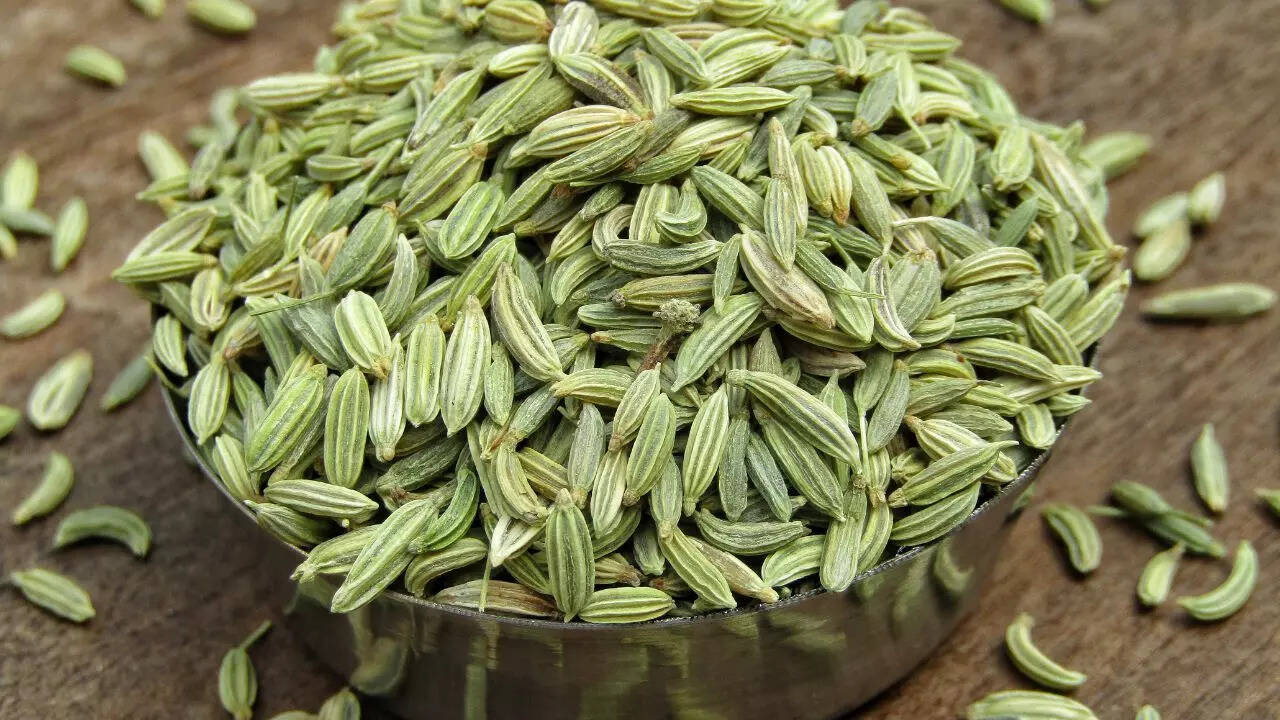
Chewing fennel seeds after meals is a time-tested Indian practice, and science confirms its benefits. These seeds contain compounds that relax gut muscles, helping release trapped gas and easing bloating. Dr Sethi recommends chewing a teaspoon of fennel seeds after meals or making a calming tea. This simple habit can help reduce discomfort and improve digestion naturally.
Cumin improves bile flow and eases cramps
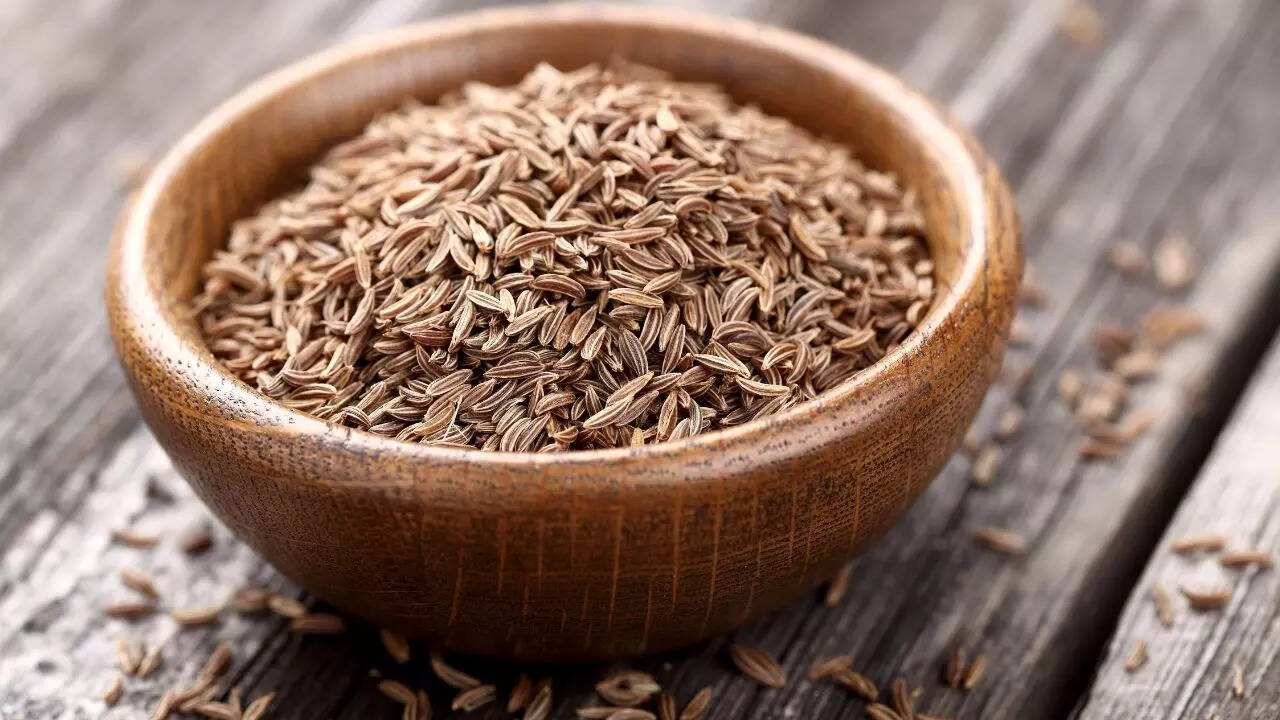
Cumin is another household spice with powerful gut benefits. It stimulates the release of bile, which aids digestion of fats. It is also useful for people with irritable bowel syndrome (IBS), as it helps relieve cramps. Dr Sethi suggests toasting cumin seeds and adding them to dals, curries, or vegetable stir-fries. Apart from improving flavour, this enhances nutrient absorption and digestive function.
Cinnamon regulates digestion and blood sugar

Cinnamon adds warmth and sweetness to foods, but it also has medicinal value. It helps regulate gut motility, making digestion smoother, and plays a role in stabilising blood sugar levels. Dr. Sethi advises sprinkling cinnamon on oats, kefir, or even coffee. Its ability to calm the gut makes it particularly helpful for people who experience erratic digestion.
Peppermint relaxes gut muscles
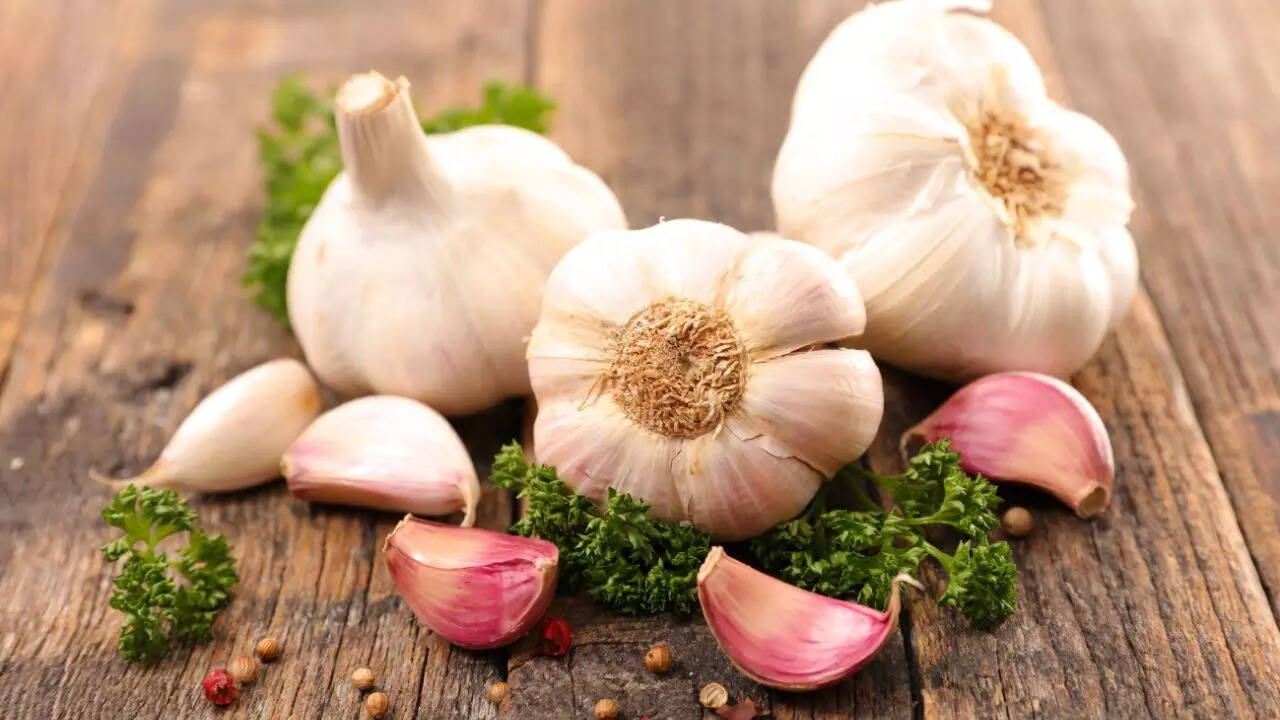
Peppermint has a cooling effect and works as a natural gut muscle relaxant. It helps reduce spasms and discomfort caused by digestive issues. Dr Sethi recommends drinking peppermint tea or using peppermint oil capsules to ease gut irritation. However, he cautions against using peppermint if you experience reflux, as it may worsen the symptoms by relaxing the lower oesophageal sphincter.
Garlic nourishes gut bacteria
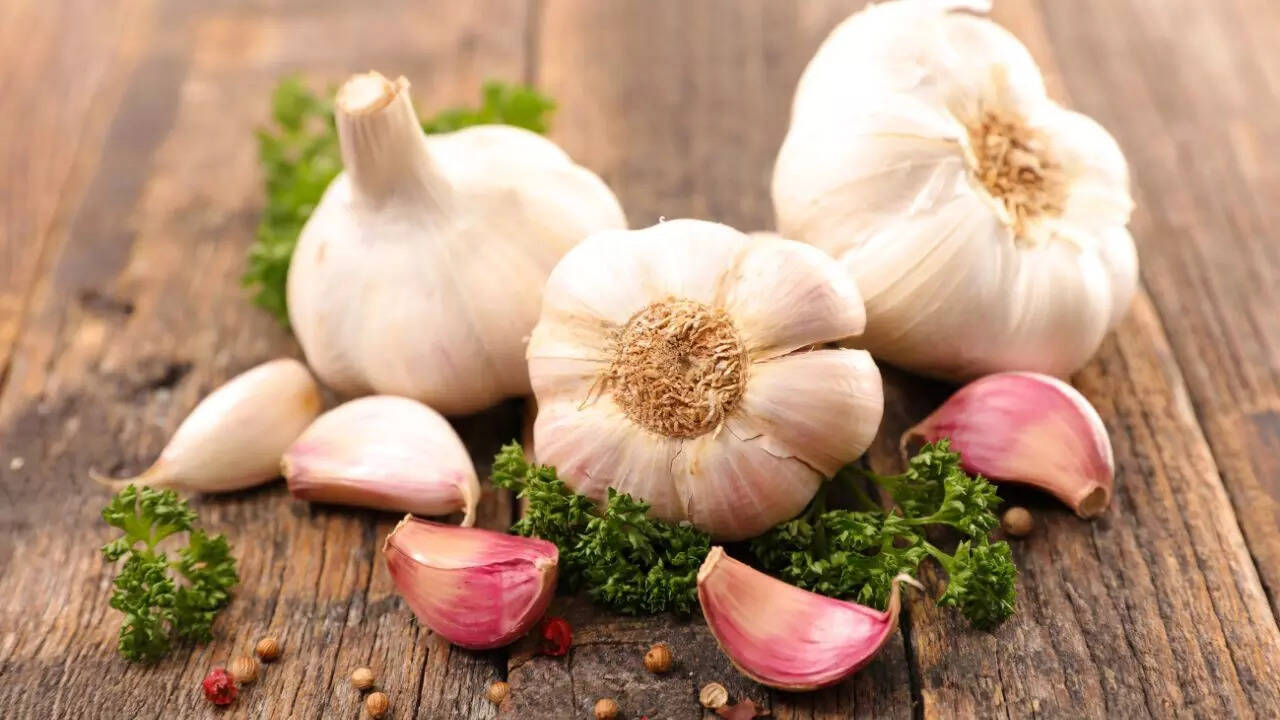
Garlic is a natural prebiotic, meaning it feeds beneficial gut bacteria, helping them thrive. At the same time, it has antibacterial, antifungal, and antiparasitic properties that keep harmful microbes under control. Dr. Sethi advises lightly crushing garlic before cooking to activate its gut-boosting compounds. Regular consumption can improve microbial balance, which is essential for long-term gut and immune health.
Coriander reduces bloating and adds flavour
Coriander, also known as cilantro, is another herb that promotes gut comfort. It helps reduce gas, bloating, and indigestion while adding freshness to meals. Dr Sethi recommends adding coriander to curries, chutneys, and salads. Beyond its digestive benefits, coriander provides antioxidants that protect gut cells and support overall wellbeing.Gut health is deeply influenced by what we eat daily. Instead of relying solely on medicines, incorporating herbs like turmeric, ginger, fennel, cumin, cinnamon, peppermint, garlic, and coriander can make digestion smoother and more comfortable. These natural remedies work best when used consistently as part of a balanced diet.Dr Sethi’s advice is clear: healing starts in the kitchen. By rotating these herbs weekly and using them in everyday cooking, you can take simple, natural steps towards better gut health.Also Read: Don’t follow these 9 cooking habits that harm digestion and trigger Irritable Bowel Syndrome


